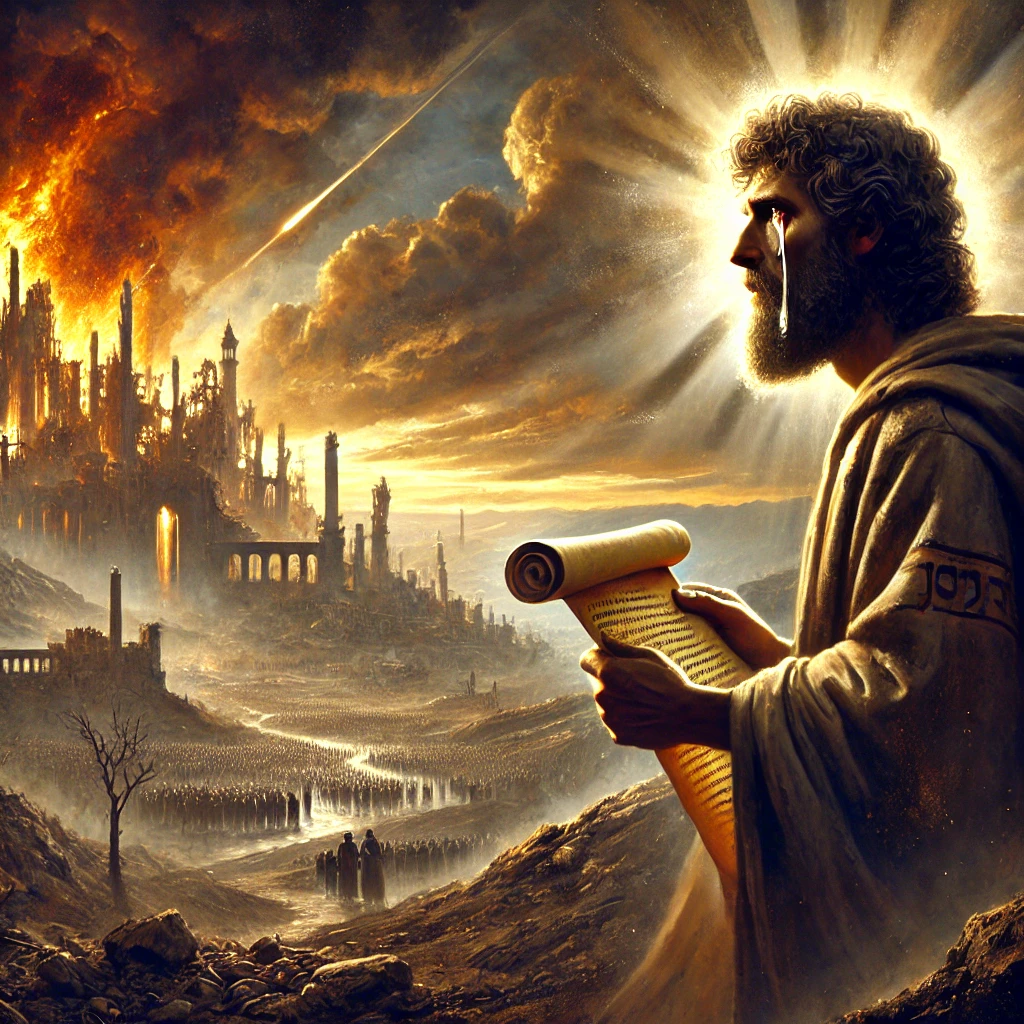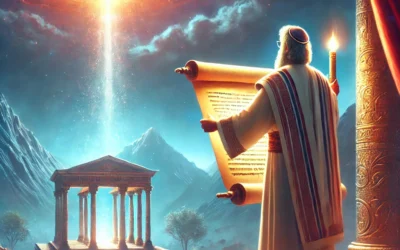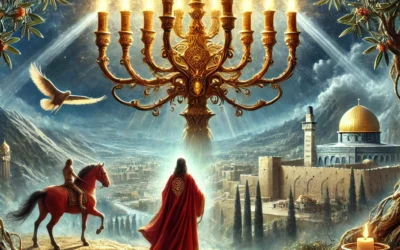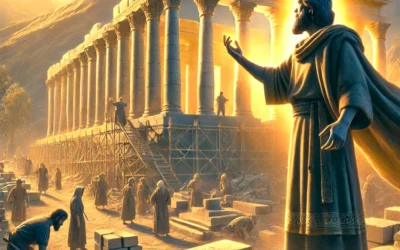The Book of Jeremiah is the twenty-fourth book of the Bible and the second of the Major Prophets.
Written by Jeremiah, who is often called the “weeping prophet,” the book spans over 40 years of ministry during the final days of the kingdom of Judah.
It contains powerful messages of judgment, heartbreaking laments, and hopeful promises of restoration.
Jeremiah’s life and message remind us that faithfulness to God often comes with suffering, but God’s plans are always good—even when His people fall short.
Jeremiah’s Calling and God’s Warnings (Jeremiah 1–6)
Jeremiah is called as a young man to be a prophet to the nations, proclaiming God’s truth in a time of deep spiritual decay.
Key Highlights:
- “Before I formed you in the womb, I knew you…” (Jeremiah 1:5)
- God warns Judah of its idolatry, injustice, and broken covenant.
- Jeremiah’s message is repeatedly rejected, but he remains faithful.
Lesson: God calls us to speak the truth—even when it’s unpopular.
Judgment Declared on Judah (Jeremiah 7–20)
Jeremiah exposes false religion and shallow worship. He warns that Jerusalem will fall to Babylon if the people do not repent.
Key Highlights:
- The Temple Sermon (chapter 7) confronts hypocrisy in worship.
- Jeremiah is persecuted, beaten, and imprisoned for his prophecies.
- He pours out his heart in honest prayers of anguish and doubt.
Lesson: God values authenticity and obedience more than outward religion.
Symbols of Judgment & the Coming Exile (Jeremiah 21–29)
God uses symbolic actions and parables through Jeremiah to illustrate His coming judgment and call for repentance.
Key Highlights:
- The image of the broken pot symbolizes destruction (chapter 19).
- Jeremiah sends a letter to the exiles in Babylon, encouraging them to seek the peace of the city (Jeremiah 29:7).
- The famous promise: “I know the plans I have for you…” (Jeremiah 29:11).
Lesson: Even in discipline, God’s plan includes hope, restoration, and a future.
Promises of Restoration (Jeremiah 30–33)
These chapters are sometimes called the “Book of Consolation”, where God promises to restore Israel and Judah, and points to a new covenant.
Key Highlights:
- God promises to bring His people back from exile and heal their wounds.
- A righteous Branch (the Messiah) will rise from David’s line.
- “I will put my law in their minds and write it on their hearts…” (Jeremiah 31:33)
Lesson: God’s mercy triumphs over judgment, and His covenant with His people is everlasting.
Jeremiah’s Personal Struggles & Final Prophecies (Jeremiah 34–52)
Jeremiah continues to warn Judah and King Zedekiah, but the people remain defiant. Eventually, Jerusalem is destroyed, and the people are taken into exile.
Key Highlights:
- Jeremiah remains in Jerusalem even after its fall, mourning the destruction.
- He prophesies judgment on other nations, including Egypt, Philistia, Moab, Edom, and Babylon.
- The book ends with a note of hope as the exiled king Jehoiachin is released from prison in Babylon.
Lesson: God’s judgment is real, but so is His grace—and even in the darkest times, hope remains.
Final Thoughts
The Book of Jeremiah is a powerful reminder that God is both holy and compassionate.
It reveals the consequences of sin and rebellion but also points to the hope of a new heart, a new covenant, and a restored relationship with God.
Jeremiah’s life of perseverance teaches us what it means to be faithful—even when it’s hard.





